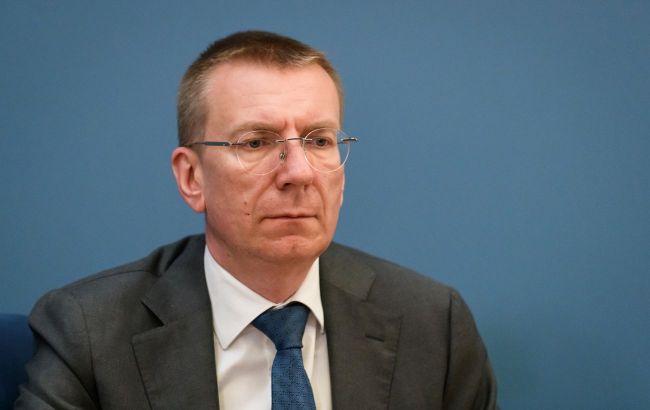President of Latvia responds to Putin's threats
 Edgars Rinkevics (Getty Images)
Edgars Rinkevics (Getty Images)
Russian President Vladimir Putin's statement claiming that the rights of Russian speakers are supposedly being restricted in Latvia is seen as an attempt to destabilize Western society and diminish support for Ukraine through various means, according to Latvian President Egils Rinkēvičs.
"Putin's threat... It's a policy of intimidation. Lately, Russian propaganda has been spreading the idea that all their citizens or those belonging to the 'Russian world' are subjected to cruel treatment. Essentially, it's an attempt to cover up all the crimes that Russia is committing in Ukraine," he said.
The Latvian president emphasized that Putin's statement was not even a direct threat but rather an attempt to incite and invite those who still feel connected to the 'Russian world' and believe they are still living in the Russian Empire to engage in anti-state actions.
Rinkēvičs also reminded that Russians living in Latvia are not subject to discrimination but are required to meet legal obligations, such as knowing the national language, which is the foundation of every country. However, in Russia, there are no democratic discussions for those with different opinions or those who cannot communicate in Russian.
"From this perspective, this is part of a strategic narrative dominated by efforts to intimidate. Lately, I feel that attempts are being made to divide not only our society but also Western society to reduce support for Ukraine in practical, political, and moral aspects," he added.
Putin's statement
Putin accused Latvia of "swinishness" over its language policy. He claimed that Latvia previously had 40% Russian-speaking population, and "now it's not much." He conveniently forgot to mention that many Russians ended up in Latvia after the country's occupation by Moscow, involving executions and deportations of local residents to Siberia.
Putin has previously spoken repeatedly about the alleged oppression of Russian speakers in Ukraine to justify his invasion. He also regularly muses about such policies in the Baltic countries, which some EU countries perceive as a threat and a potential preparation for an attack on NATO.

